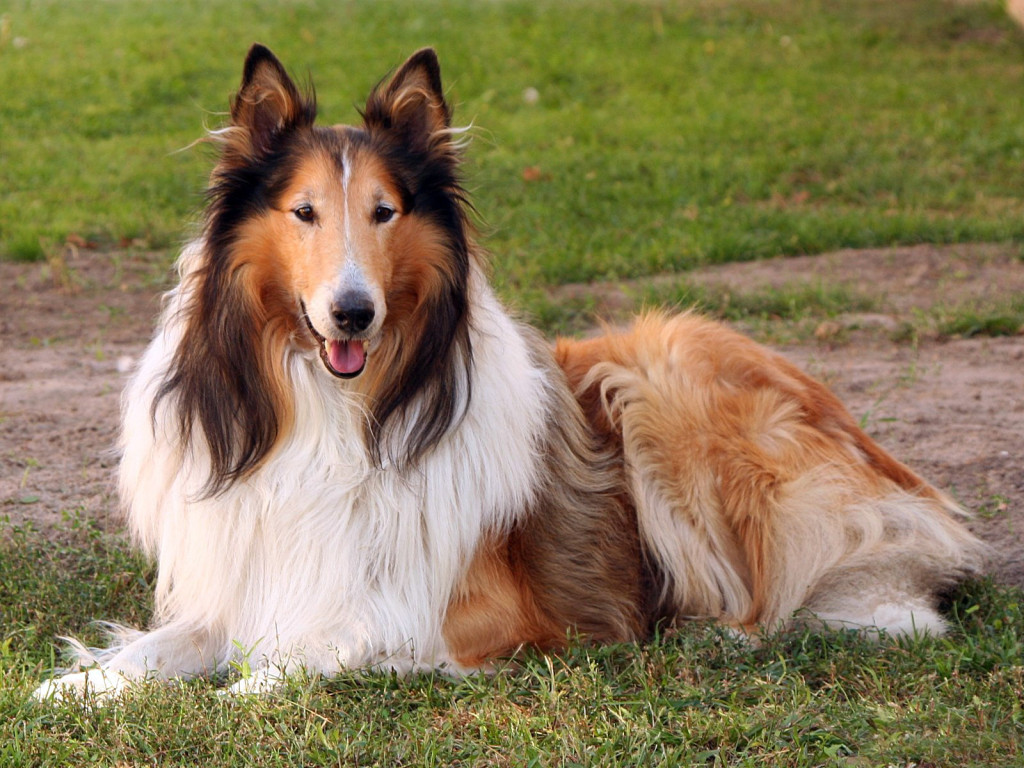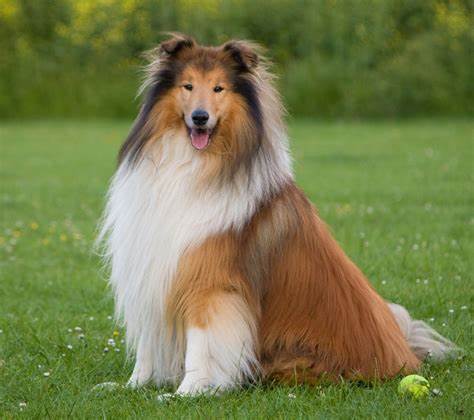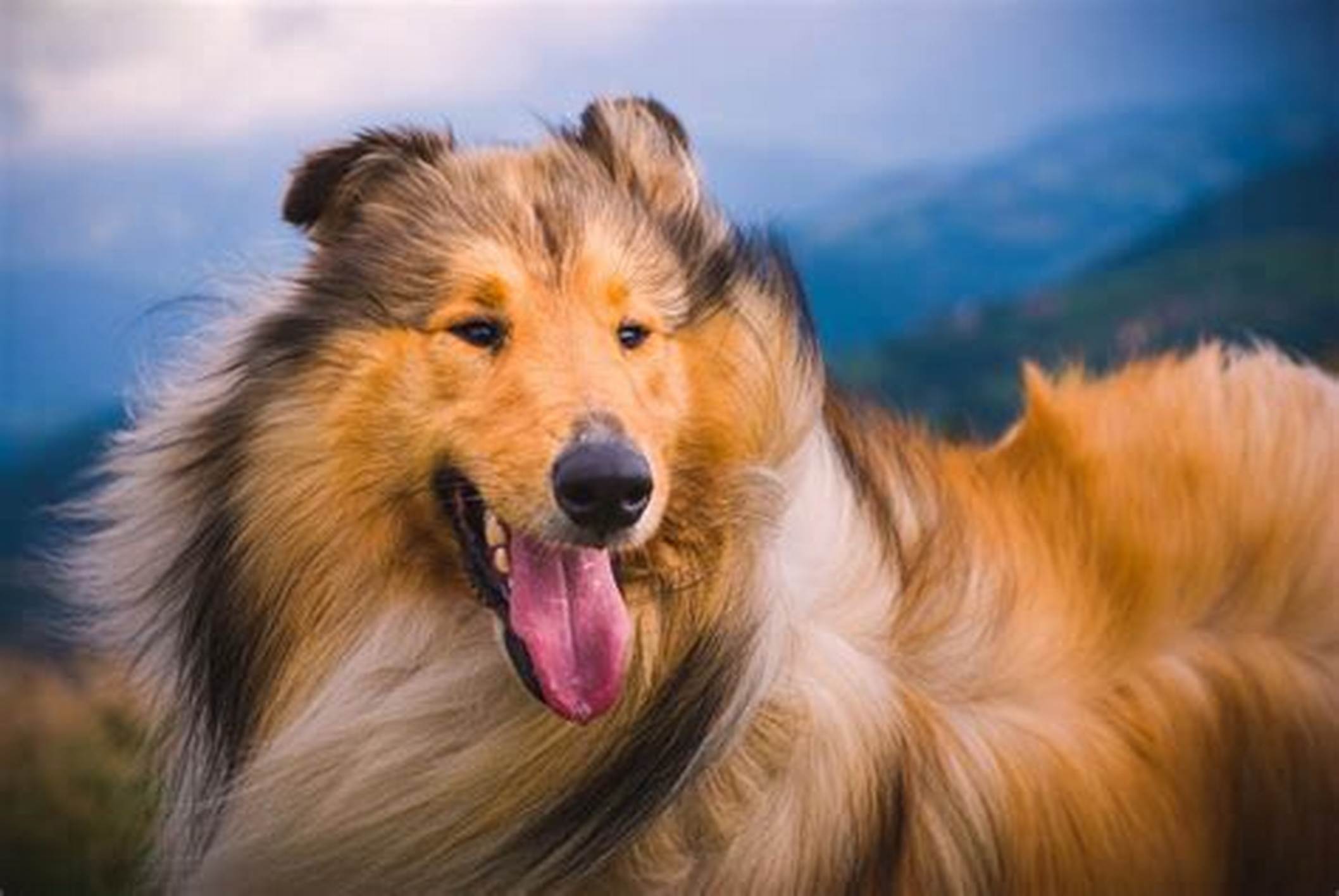Collie: The Loyal and Graceful Scottish Herding Dog

History of the Collie
The Collie is a beloved herding breed with its roots in Scotland and Northern England, where it was developed to herd and protect sheep in rugged highland terrain. By the 18th century, Collies had become indispensable to shepherds due to their intelligence, stamina, and strong work ethic.
The breed gained worldwide fame in the 19th century after Queen Victoria fell in love with Collies during a visit to Scotland, leading to their rise as both working dogs and elegant companions. Their popularity soared again in the 20th century thanks to “Lassie,” the iconic Collie from books, TV, and film.
Today, there are two main varieties:
• Rough Collie: With a long, flowing coat.
• Smooth Collie: With a short, dense coat.
Both are recognized by the American Kennel Club (AKC) and are prized for their beauty, intelligence, and devotion.
Popularity of the Collie
The Collie is a timeless favorite in both the United States and Europe, especially among families. Known for their gentle temperament and ability to bond with children, Collies consistently rank as one of the top family dog breeds.
Physical Traits of the Collie
The Collie is a medium-to-large herding dog known for its elegant movement, expressive face, and refined appearance.
• Coat:
o Rough Collie: Long, abundant double coat with a soft undercoat and a straight, harsh outer coat.
o Smooth Collie: Short, flat, dense coat with the same color and structure but easier grooming.
• Colors:
o Sable and white, tri-color (black, white, and tan), blue merle, and white with markings.
• Size:
o Height: 22–26 inches (56–66 cm)
o Weight: 50–75 lbs (23–34 kg)
• Head & Expression: Long, lean, wedge-shaped head with a sweet, intelligent expression. Almond-shaped, expressive eyes.
• Ears: Semi-erect—tipped forward at the top third, adding to their alert, gentle appearance.
• Tail: Long and well-feathered (in Rough Collies), carried low when relaxed and up when alert.
• Body: Graceful, athletic, and well-balanced with strong legs and a deep chest.
Behavioral Traits of the Collie
Collies are known for their intelligence, trainability, and sensitivity, making them outstanding family and companion dogs.
• Gentle and Loyal: Collies are devoted to their families, especially children, and often act as gentle protectors.
• Highly Intelligent: One of the smartest breeds—quick learners that thrive on structure and praise.
• Sensitive to Emotion: Very in tune with human moods, making them excellent therapy or emotional support dogs.
• Playful and Alert: Energetic outdoors but calm and well-mannered indoors.
• Sociable and Friendly: Rarely aggressive—welcomes guests with curiosity and kindness when properly socialized.

Why Choose a Collie?
The Collie is a versatile and elegant breed, perfect for families, active individuals, and anyone who values a smart, loyal dog.
• Great with Kids: Naturally protective, patient, and gentle—often called the “babysitter dog.”
• Trainable and Obedient: Eager to please and responsive to gentle guidance.
• Low Aggression: Rarely confrontational; prefers to avoid trouble and keep the peace.
• Therapy and Service Potential: A top choice for emotional support or assistance work.
• Beauty and Grace: Long, flowing coat and regal stance make the Collie aesthetic as well as functional.
Caring for Your Collie
While Collies are relatively easygoing, they do best with consistent care, regular grooming, and social interaction.
• Training:
o Start early—Collies are fast learners and sensitive to tone.
o Respond well to positive reinforcement and praise.
• Exercise:
o Needs moderate daily activity—walks, play, or mental games.
o Enjoys sports like herding trials, agility, and obedience.
• Grooming:
o Rough Collie: Brush 2–3 times a week, more during shedding season.
o Smooth Collie: Weekly brushing usually suffices.
o Regular ear checks, nail trims, and dental hygiene are important.
• Nutrition:
o Feed a balanced, high-quality diet to support coat health and energy.
o Watch weight to avoid stress on joints.
• Companionship:
o Not suited to being left alone for long periods—craves connection and purpose.
Health Considerations
Collies are generally healthy but can be prone to certain inherited issues:
• Collie Eye Anomaly (CEA): A genetic condition affecting the retina.
• Progressive Retinal Atrophy (PRA)
• Hip Dysplasia
• Dermatomyositis (a skin and muscle disorder)
• Drug Sensitivity (MDR1 gene mutation): Affects reaction to certain medications.
Work with breeders who screen for genetic issues, and schedule routine vet care to ensure long-term health.

Comparisons to Other Herding Breeds
Compared to the Border Collie, the standard Collie is less intense and more laid-back. Unlike the Australian Shepherd, the Collie tends to be less boisterous and more polite indoors. In terms of grooming and temperament, it’s more refined and less rowdy than many modern herding dogs.
Its blend of elegance, smarts, and gentleness makes it especially suitable for homes with children or sensitive individuals.
Is the Collie Right for You?
If you want a loving, intelligent, and beautiful dog who is good with kids, eager to learn, and easy to live with, the Collie is an excellent match. It thrives in homes where it can participate in daily routines, enjoy affection, and be part of the family unit.
However, if you're looking for a dog that can be left alone all day or requires minimal grooming, another breed may be a better fit.
Ready to Welcome a Collie?
United Pet Club is here to help you find your perfect Collie companion. Whether you're looking to adopt, find a reputable breeder, or learn more about care and training, our platform provides trusted resources and guidance.
Discover the elegance, loyalty, and loving heart of the Scottish Collie, and start your journey with this iconic and intelligent companion.
